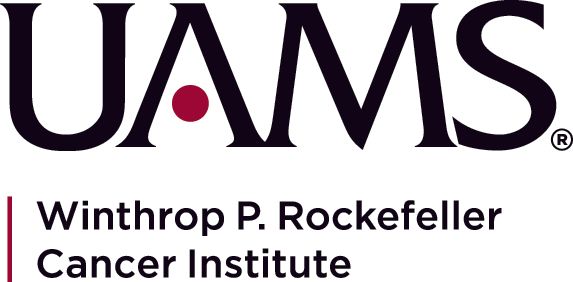
- Vol.24/No.11
- Volume 24
- Issue 11
Current Treatment Perspectives for CAR T-Cell Therapy in R/R B-Cell Lymphoma

Chimeric antigen receptor T-cell therapy has proven to be an effective adoptive cellular therapy against relapsed/refractory B-cell lymphoma.
Chimeric antigen receptor (CAR) T-cell therapy has proven to be an effective adoptive cellular therapy against relapsed/refractory B-cell lymphoma. Prior to the CAR T era, patients with relapsed/refractory diffuse large B-cell lymphoma (DLBCL) had dismal outcomes, as seen in participants in the international SCHOLAR-1 study.1 Findings from the study, which pooled data from 2 phase 3 clinical trials and 2 observational cohorts, showed an overall objective response rate (ORR) and complete response (CR) rate of 26% (95% CI, 21%-31%) and 7% (95% CI, 3%-15%), respectively, with salvage chemotherapies in patients with refractory and early relapsed DLBCL (n = 636) and a median overall survival (OS) of 6.3 months (95% CI, 5.9-7.0).1
Results of the landmark phase 2 ZUMA-1 trial (NCT02348216) showed the safety and efficacy of the CD19-directed CAR T-cell agent axicabtagene ciloleucel (Yescarta) among patients with relapsed/refractory DLBCL (n = 111). The ORR and CR rates were 82% (95% CI, 73%-89%) and 54%, respectively. The 1-year progression free survival and OS rates were 44% (95% CI, 34%-53%) and 59% (95% CI, 49%-68%), respectively.2 Similarly, other CAR T-cell therapies directed against CD19 for patients with relapsed/refractory large B-cell lymphoma using 4-1bb as the costimulatory domain showed similar efficacy in the phase 2 JULIET (NCT02445248) and phase 1 TRANSCEND-NHL-001 (NCT02631044) trials.3,4
CAR T-cell therapies typically come with unique but manageable adverse events (AEs), specifically cytokine release syndrome (CRS) and neurotoxicity. Incidence of CRS and neurotoxicity ranged from 42% to 93% and 30% to 64%, respectively, in the JULIET and TRANSCEND-NHL-001.2-4
At the Winthrop P. Rockefeller Cancer Institute Transplant Center in Little Rock, Arkansas, we closely monitor for CRS and neurotoxicity after CAR T-cell infusion per Lee scale, and also for increased infection risk from pancytopenia and acquired hypogammaglobulinemia from B-cell aplasia.5 I typically put my patients on appropriate antibiotic prophylaxis, use growth factor support as needed for low blood counts, and use intravenous immunoglobulin replacement of 400 mg/kg to mitigate the risk of infection.
The ZUMA- 2, -3, and -5 studies led to FDA approvals for CAR T-cell therapies in relapsed/refractory mantle cell lymphoma, B-cell acute lymphoblastic leukemia, and follicular lymphoma respectively, with studies showing durable efficacy and manageable AE profiles.6-8 Another recent FDA approval for a CAR T-cell therapy as a second-line treatment for patients with primary refractory and early relapsed DLBCL who are less than 12 months from frontline chemoimmunotherapy came based on the phase 3 ZUMA-7 (NCT03391466) and TRANSFORM (NCT03575351) studies, whose results showed significantly better ORRs and median event-free survival compared with salvage therapy followed by autologous stem cell transplant.9
The advent of CD19-directed CAR T-cell therapy certainly has changed the management landscape of several relapsed refractory B-cell malignancies. However, patients who experience disease progression post CAR T-cell therapy often have a poor prognosis with limited therapeutic options. Approximately one-third of patients post CAR T-cell therapy show CD19 loss or downregulation, offering immune escape as possible etiology for disease progression.10
The remainder of CAR T nonresponders could have an immunosuppressive tumor microenvironment, upregulation of PD-L1, CTLA-4, poor T-cell infiltration in the tumor bed, poor T-cell functional avidity, or T-cell immunosenescence as possible etiologies for disease progression. Several clinical trials are underway using CAR T agents targeting 2 separate tumor associated antigens, combining PD-1 inhibitors and CTLA-4 inhibitors with immunomodulators, and using other novel approaches to overcome resistance against CAR T.
Akash Mukherjee, MD, is a hematologist/oncologist at the Winthrop P. Rockefeller Cancer Institute at the University of Arkansas for Medical Sciences (UAMS) and an assistant professor in the Department of Internal Medicine at UAMS College of Medicine in Little Rock. He specializes in allogeneic and autologous stem cell transplantation and CAR T-cell therapy to treat patients with various malignant hematological disorders.
References
- Crump M, Neelapu SS, Farooq U, et al. Outcomes in refractory diffuse large B-cell lymphoma: results from the international SCHOLAR-1 study. Blood. 2017;130(16):1800-1808. doi:10.1182/ blood-2017-03-769620
- Neelapu SS, Locke FL, Bartlett NL, et al. Axicabtagene ciloleucel CAR T-cell therapy in refractory large B-cell lymphoma. N Engl J Med. 2017;377(26):2531-2544. doi:10.1056/NEJMoa1707447
- Schuster SJ, Bishop MR, Tam CS, et al. Tisagenlecleucel in adult relapsed or refractory diffuse large B-cell lymphoma. N Engl J Med. 2019;380(1):45-56. doi:10.1056/NEJMoa1804980
- Abramson JS, Palomba ML, Gordon LI, et al. High durable CR rates in relapsed/refractory (R/R) aggressive B-NHL treated with the CD19-directed CAR T cell product JCAR017 (TRANSCEND NHL 001): defined composition allows for dose-finding and definition of pivotal cohort. Blood. 2017;130(suppl 1):581. doi:10.1182/blood.V130.Suppl_1.581.581
- Lee DW, Gardner R, Porter DL, et al. Current concepts in the diagnosis and management of cytokine release syndrome. Blood. 2014;124(2):188-195. doi:10.1182/blood-2014-05-552729
- Wang M, Munoz J, Goy A, et al. KTE-X19 CAR T-cell therapy in relapsed or refractory mantle-cell lymphoma. N Engl J Med. 2020;382(14):13311342. doi:10.1056/NEJMoa1914347
- Shah BD, Ghobadi A, Oluwole OO, et al. KTE-X19 for relapsed or refractory adult B-cell acute lymphoblastic leukaemia: phase 2 results of the single-arm, open-label, multicentre ZUMA-3 study. Lancet. 2021;398(10299):491-502. doi:10.1016/S0140-6736(21)01222-8
- Jacobson CA, Chavez JC, Sehgal AR, et al. Axicabtagene ciloleucel in relapsed or refractory indolent non-Hodgkin lymphoma (ZUMA-5): a single-arm, multicentre, phase 2 trial. Lancet Oncol. 2022;23(1):91103. doi:10.1016/S1470-2045(21)00591-X
- Locke FL, Miklos DB, Jacobson CA, et al; All ZUMA-7 Investigators and Contributing Kite Members. Axicabtagene ciloleucel as second-line therapy for large B-cell lymphoma. N Engl J Med. 2022;386(7):640654. doi:10.1056/NEJMoa2116133
- Plaks V, Rossi JM, Chou J, et al. CD19 target evasion as a mechanism of relapse in large B-cell lymphoma treated with axicabtagene ciloleucel. Blood. 2021;138(12):1081-1085. doi:10.1182/ blood.2021010930
Articles in this issue
over 2 years ago
Examining the Role of BTK Inhibitors in Mantle Cell Lymphomaover 2 years ago
Leveraging BTK Inhibitors in Chronic Lymphocytic Leukemiaover 2 years ago
New Strategies for Targeting CTLA-4 Emergeover 2 years ago
Strides in GI Cancer Subsets Influence Advances



































